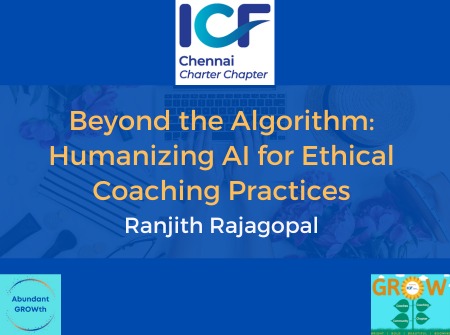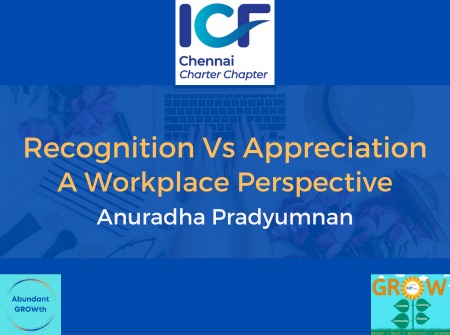In the last year, the most commonly used phrase around the world has been Artificial Intelligence (AI), sometimes known as Gen AI. AI has become somewhat of a household phrase.
Still, I’d prefer to define AI as the study of developing systems that can intelligently (although artificially) accomplish tasks that would ordinarily need human intellect, such as thinking, learning, and decision making.
While AI has permeated every aspect of our life, it also brings significant challenges and concerns, including ethical, social, and legal issues such as privacy, security, fairness, accountability, and so on.
While experts in all professions have begun adopting AI in some form or shape, there is also concern about the larger influence of AI in their respective domains, including their current jobs.
In 2023, AI ‘godfather’ Geoffrey Hinton quits Google over the perils of artificial intelligence, and has recently expressed severe concern that AI will take “lots of mundane jobs,”
This blog is an exploration of the intersection of AI and ethical life coaching practices, where the human touch is essential and significant, by identifying and exploring potential solutions to bridge the gap between algorithm-driven AI coaching and the power of human elements such as emotional intelligence, empathy, active listening, and so on.
The limitations of algorithm-driven coaching: Recognizing the human element
In 2022, Amazon scrapped its internal AI recruitment tool after it was found to discriminate against female applicants. This demonstrates the possibility of bias in AI algorithms used for career advancement, which could lead to the exclusion of competent applicants based on variables unrelated to their skill set.
In 2023, a popular meditation app was fined for allegedly sharing user data with third-party companies without explicit consent. This raises concerns about data privacy in AI-powered life coaching tools.
As a wholly human-centric profession, coaching can have serious negative effects on both the client’s well-being and the reputation of the industry as a whole from unethical practices.
Coaching is in general an unregulated profession, whereas AI & digital technologies are intricate in nature. When these two come together without proper guidelines on its usage, there’s a big potential for ethical mismanagement.
Emotion is a complicated realm that is very sensitive and personal, with a solid basis in human experience. While AI has made progress in many areas and can provide useful insights, it still has a long way to go before it can fully comprehend human behaviour and handle emotions that are central to coaching in an ethical and unbiased manner.
Key challenges are
- AI lacks the personal experiences that makes it difficult for AI to fully grasp the subjective nature of emotions.
- AI will struggle to understand cultural nuances in emotional expression, will not fully grasp the nuances of a person’s unique situation, background, or environment, which can lead to misinterpretation.
- AI does not possess the human ability to empathize, which is crucial for addressing emotional nuances in a Life coaching.
- AI can misinterpret nonverbal cues, such as facial expressions, body languages or tonality that are key to understanding the client’s emotional states.
- AI is over reliant on ethical, unbiased and factually correct data. AI coaches trained on biased and poor quality data can lead to prejudiced recommendations, leading to discriminatory advice based on age, gender, ethnicity, or other personal characteristics
Let’s consider some hypothetical scenarios where AI life coaching could be used unethically. This list is not limited to
- An AI life coach, designed to maximize user engagement, might suggest unrealistic goals or encourage risky behaviour to keep users hooked.
- An AI life coach could pressurize users to conform to predefined models of success and in that process killing the creativity and out of box thinking of the client
- An AI life coach could collect a client’s data (e.g., career aspirations, financial goals, health challenges, personal vulnerabilities) and can potentially manipulate it to use it for targeted advertising, upselling premium products & services, exploiting their desires and vulnerabilities.
- An AI life coach could be designed to exploit the trust of clients by reinforcing harmful behaviour or belief such as guilt, shame, or fear under the guise of personal development, potentially leading to worsening of the condition and negative consequences for mental well-being.
- An AI life coaching can become addictive to the client that they become over-reliant on the AI for decision-making, potentially diminishing their ability to make independent choices and critical thinking skills.
Bridging the gap: Incorporating emotional intelligence and empathy in AI-powered coaching
Combining the analytical power of AI with the expertise of human coaches with the humanized emotion, empathy, trust and listening can provide a more comprehensive coaching experience.
- Combine AI with human coaches to provide a comprehensive coaching experience. While AI coaching can handle routine tasks like data analysis and personalized content delivery , with human coaches handling nuanced emotional states and empathy that AI lacks
- By blending the personalization capabilities of AI with the empathetic touch of human coaches, clients can receive a truly customized and transformative coaching experience.
- Develop AI within ethical frameworks that prioritize empathy and active listening, ensuring that the AI respects the user’s emotional well-being and privacy
- AI coaches designed for emotional prompting that encourage users to express their emotional states can help
- Human coaches with deeper insights into the client’s feelings and perspectives
- As an initial assessment tool, helping human coaches quickly identify areas of concern or interest before a session
- Ensure consistent emotional engagement, providing prompts that maintain a client’s interest between coaching sessions
- Human coaches extend their reach, allowing them to support more clients simultaneously while maintaining a high level of personalized care
- Establish a feedback loop where the AI learns from each interaction, improving its ability to understand emotional patterns, demonstrate empathy over time
Let’s see some hypothetical case studies on how AI can be integrated with ethical coaching practices to enhance the coaching experience
Case Study 1: Empathy in AI Coaching
A Life Coach, uses an AI tool to analyze clients’ speech patterns and word usage to better understand their emotional states. However, coach doesn’t rely solely on the AI’s analysis. Instead, uses it as a starting point to ask deeper questions and provide empathetic feedback.
Case Study 2: AI as a Collaborative Tool
A Career Coach, incorporates AI into the sessions by using it to help clients explore career paths and opportunities. Coach uses the data-driven insights provided by AI and adds value by helping clients interpret the information and align it with their personal goals and values.
The future of AI-enabled coaching and the importance of humanization
As Dr. Andrew Ng, Co-founder of Google Brain, Coursera, and DeepLearning.AI Adjunct Professor, Stanford University said “AI is the new electricity”.
AI is going to be a key differentiator in the future of coaching, and those coaches who adopt and adapt to AI will have a visible edge in the near future.
The future of ethical and successful coaching will be shaped by the seamless integration of technology and the human touch, making sure AI enhances human expertise rather than replaces it by striking a balance between technical advancement and human values.
The best case scenario is a Collaborative and Synergistic approach in which AI enables human coaches to deliver individualized and impactful coaching experiences. The human coach is the one who builds relationships, fosters trust, shows empathy and creates a safe space that encourages clients towards profound personal development, and helps them reach their objectives. It’s crucial for the coaches to be aware of these challenges and the opportunities that AI opens up. We should work towards creating AI tools that are fair, unbiased, and respectful of the coaching process and helps build stronger client-coach relationship
You can connect with Ranjith Rajagopal Click Here



